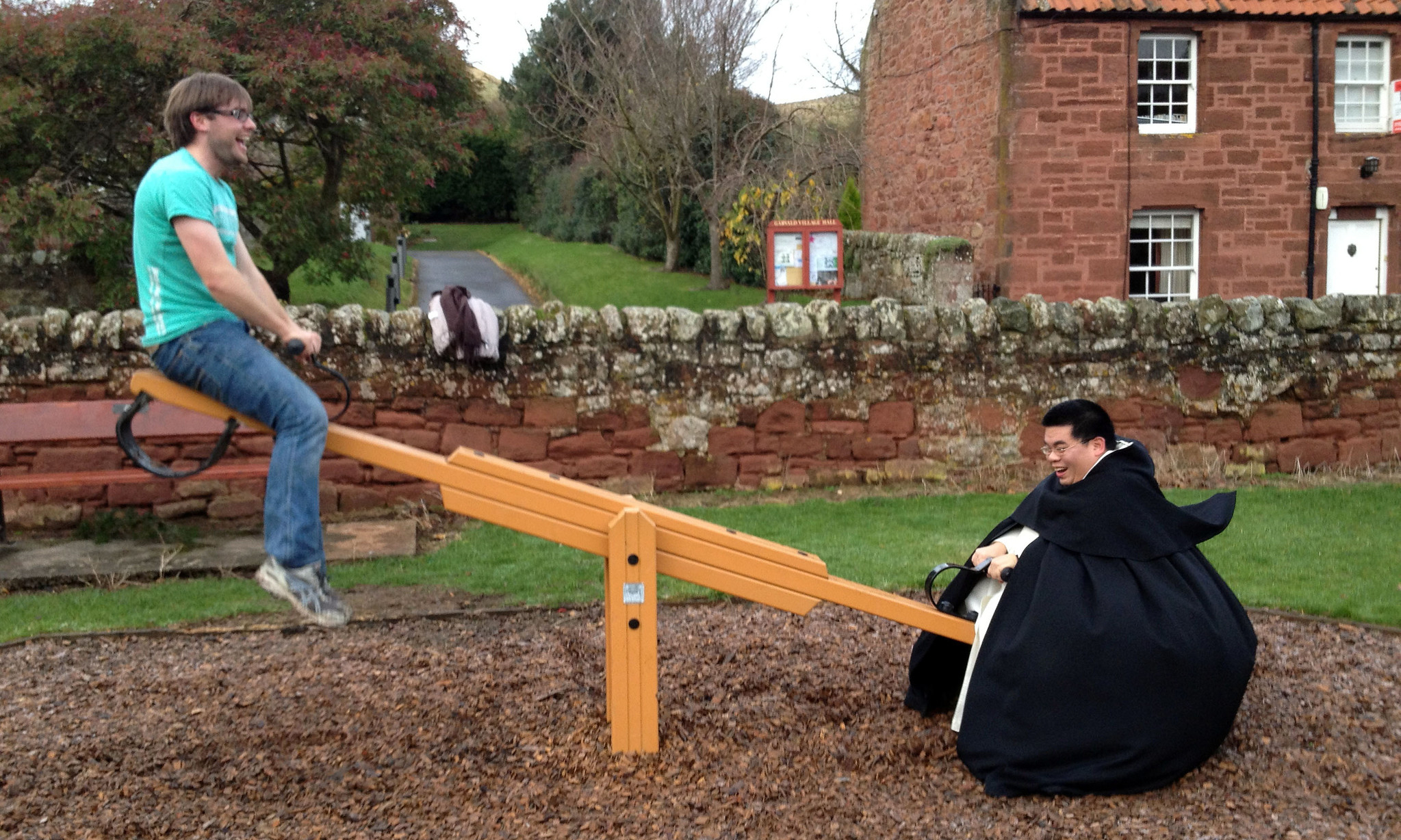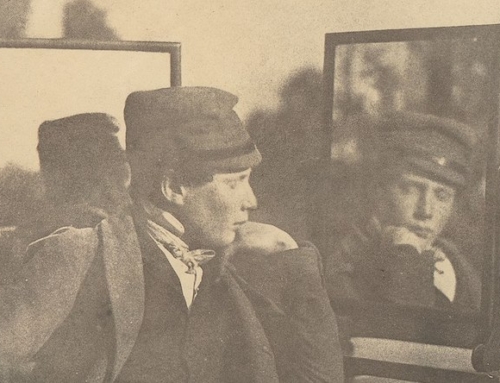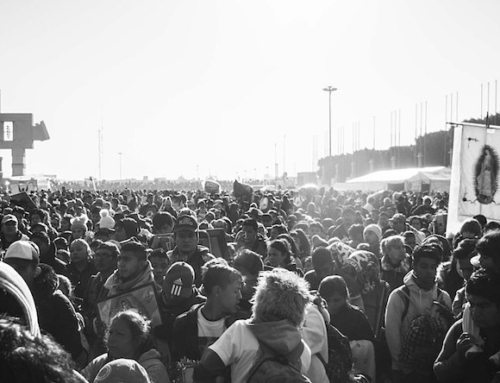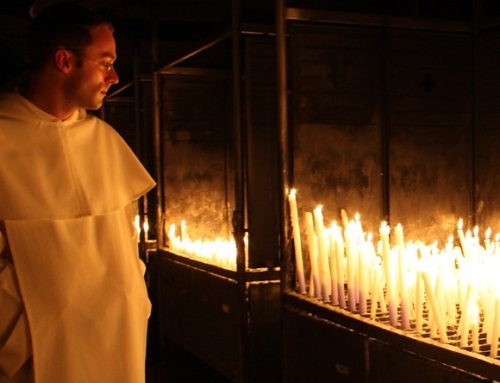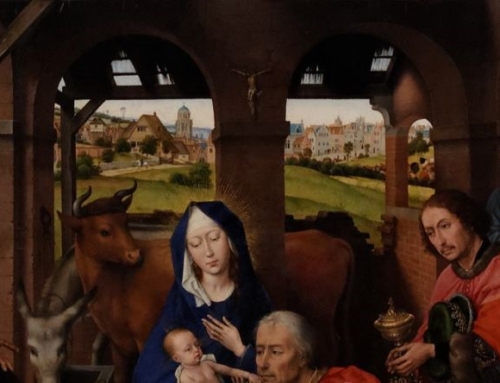He called a child over, placed it in their midst, and said, “Amen, I say to you, unless you turn and become like children, you will not enter the kingdom of heaven.” (Mt 18:3)
I like being able to take care of myself. So I don’t really like thinking about Jesus’ call to turn and become like children. But in trying to understand what our Lord means, it can be helpful to think about the relationship between nature and grace. I like thinking about that.
Aquinas teaches that grace perfects nature (ST I q. 1, a. 8, ad 2). It heals and elevates the natural powers of the human person: our capacities to know and love. All this is true. But in the spirit of this Gospel it is also fitting to say, as the Dominican moral theologian Fr. Michael Sherwin puts it, that nature is “the playground of grace” (On Love and Virtue, p. xiv). God’s grace makes us come fully alive, like the vivacity of children totally letting loose on a playground.
What does this spiritual childhood look like? I found out one morning at Mass at the Dominican House of Studies.
I was going up to receive Communion. I stepped up in front of the priest, made a profound bow, and he said in his distinct nasally tone, “The Body of Christ.” As I said “Amen” I realized he was … still speaking. As he was reaching out to give me Communion, he was talking to the Host! As he’s putting our Lord on my tongue he’s saying in a kind of stage whisper, I love you, Lord. I’m sorry for my sins.
Now that right there is living life on the playground of grace. That is radical freedom—the kind that makes one feel free enough to just, you know, innocently talk to Jesus while distributing him in Holy Communion. Saint Teresa of Avila had the same freedom instilled in her. She once overheard a person remarking, “If only I had lived at the time of Jesus … If only I had seen Jesus … If only I had talked with Jesus.” She is said to have responded, “But do we not have in the Eucharist the living, true, and real Jesus present before us? Why look for more?”
The source of such freedom can only be found in a deep sense of dependence on and trust in the Father’s care, like the kind young children naturally have that their parents will take care of them. By grace, we acquire the freedom to delight in our total dependence on God, and recognize the gifts he gives us for what—and Who—they truly are.
O Lord, grant us an increase in this gift of grace, to humbly delight in your care for us.
✠
Photo by Fr. Lawrence Lew, O.P. (used with permission)

